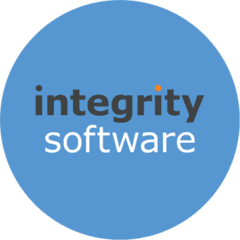In the fast-paced and highly competitive construction industry, managing finances can be a challenging task. Projects are often large and complex, involving multiple stakeholders, fluctuating costs, and unpredictable timelines. For construction companies, having a robust accounting system in place is essential to keep track of finances, ensure profitability, and maintain control over project budgets.
That’s where accounting software for construction comes into play. Construction-specific accounting solutions are designed to handle the unique financial needs of the industry, streamlining operations, increasing efficiency, and helping businesses stay on top of their financial health. In this guide, we’ll explore why accounting software tailored for construction companies is essential, its key benefits, and how to choose the right solution for your business.
Why Generic Accounting Software Doesn’t Cut It for Construction
Many construction firms make the mistake of using generic accounting software that isn’t tailored to their specific needs. While traditional accounting software might work for basic bookkeeping and financial reporting, it often falls short in the complex, multi-faceted environment of construction.
In construction, accounting involves much more than tracking income and expenses. It requires job costing, managing progress billing, handling subcontractor payments, and keeping track of multiple project budgets simultaneously. The ability to report on financials in real-time and across different projects is crucial.
That’s why more and more construction companies are turning to accounting software for construction that’s specifically designed for their industry.
Key Features of Accounting Software for Construction
Construction-specific accounting software comes packed with a range of features designed to address the needs of construction companies, big and small. Below are some of the most valuable features that these systems offer:
1. Job Costing
One of the most critical aspects of construction accounting is accurate job costing. This involves tracking all expenses associated with a project, including labour, materials, equipment, and subcontractors, to determine the true cost of a job. Effective job costing enables construction companies to monitor profitability in real time and make informed financial decisions. Accounting software for construction automates this process, ensuring that every cost is allocated correctly.
2. Project Budgeting and Forecasting
Another critical feature is project budgeting. Construction accounting software allows project managers and financial controllers to create detailed budgets for each project. With real-time reporting and forecasting capabilities, companies can track whether they are over or under budget at any stage of the project. This allows for proactive decision-making, helping to prevent cost overruns that can hurt profitability.
3. Progress Billing
Unlike other industries, construction projects often require progress billing. This means invoicing the client based on the percentage of the project completed, rather than billing for the entire project upfront. Construction accounting software simplifies progress billing, ensuring that invoices are generated correctly and payments are tracked efficiently.
4. Subcontractor Management
Managing subcontractor payments can be a challenge without the right tools in place. Accounting software for construction allows you to track subcontractor costs, generate purchase orders, and ensure that payments are made on time. It also helps you manage compliance, making sure that all necessary documentation, such as insurance certificates and lien waivers, are in place before payments are released.
5. Compliance and Retainage
Construction companies must comply with a range of regulations, including tax laws, labour laws, and industry standards. Accounting software for construction is designed to help businesses stay compliant by tracking key information like tax obligations and certified payroll. Additionally, retentions – a portion of payment withheld until the project is completed – are handled seamlessly, ensuring accurate calculations and payments.
6. Integrated Timesheets and Payroll
Labour costs are one of the largest expenses for any construction company. Managing timesheets, tracking hours worked, and processing payroll accurately are crucial for maintaining profitability. Construction-specific accounting software often integrates with timesheet systems, allowing for automatic payroll calculations that reduce the chance of errors and save time.
7. Document Management
Another significant advantage of construction accounting software is the ability to manage documents. From contracts to invoices, purchase orders to change orders, having all relevant documents stored in one place ensures that important information is easily accessible. Document management also helps with audit readiness and compliance.
8. Reporting and Analytics
Data-driven decision-making is critical in the construction industry. Accounting software for construction provides detailed financial reports that help managers and executives track the financial health of their projects and overall business. Customisable dashboards and analytics tools offer insights into key performance indicators (KPIs) such as cash flow, profit margins, and overhead costs.
Benefits of Using Construction-Specific Accounting Software
Now that we’ve covered some of the key features, let’s dive into the benefits that come with using accounting software for construction:
1. Improved Accuracy
Automating financial processes reduces the risk of human error, ensuring that your financial data is accurate and reliable. This is particularly important when it comes to job costing, payroll, and project budgeting, where even small mistakes can lead to significant financial losses.
2. Time-Saving
Manual accounting processes are time-consuming, especially when handling complex projects with multiple stakeholders. By automating tasks like progress billing, timesheets, and reporting, construction accounting software frees up time for your finance team to focus on more strategic activities.
3. Better Financial Control
Having real-time visibility into project budgets, costs, and profitability allows construction companies to make informed decisions quickly. This level of financial control helps businesses avoid cost overruns, stay on budget, and maximize profitability.
4. Enhanced Collaboration
Construction projects involve many different teams, from site managers to subcontractors. Accounting software for construction centralizes financial data, making it easy for everyone to stay on the same page. Integrated communication tools and document management features foster collaboration across departments.
5. Scalability
As your construction company grows, so do your financial management needs. Construction-specific accounting software is designed to scale with your business, allowing you to handle more complex projects, more employees, and more data without missing a beat.
How to Choose the Right Accounting Software for Construction
Choosing the right accounting software for construction is a critical decision that will impact your business’s financial health and operational efficiency. Here are some key considerations to keep in mind when evaluating different solutions:
1. Industry-Specific Features
Make sure the software you choose has the essential features for construction, such as job costing, project budgeting, and progress billing. These industry-specific tools will make your financial management more efficient and accurate.
2. Ease of Use
The software should be user-friendly and intuitive. If it’s too complicated, your team may struggle to adopt it, leading to inefficiencies and errors.
3. Scalability
Make sure the software can grow with your business. As you take on more projects or expand to new locations, the software should be able to handle the increased data and complexity.
4. Support and Training
Look for software providers that offer comprehensive support and training. This is especially important during the implementation phase when your team is learning how to use the new system.
Conclusion
Investing in accounting software for construction is one of the smartest decisions you can make for your business. With industry-specific features that streamline financial management, enhance collaboration, and improve accuracy, this software helps construction companies stay profitable and efficient. By choosing the right solution, you’ll set your business up for long-term success in a competitive and challenging industry.
If you’re ready to explore how construction-specific accounting software can benefit your company, contact Integrity Software today to learn more about our tailored solutions.

